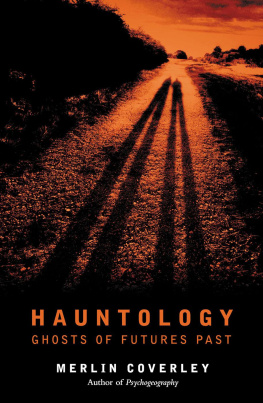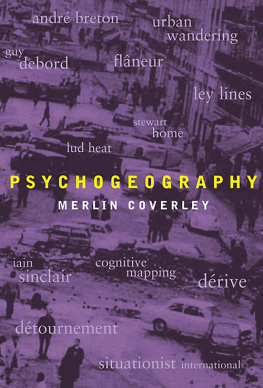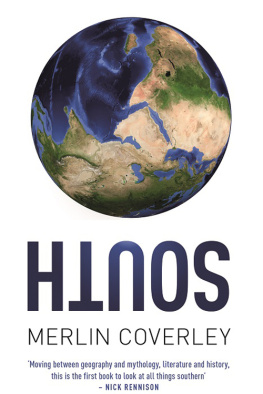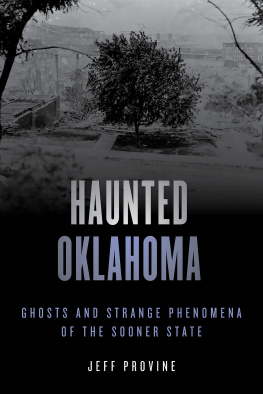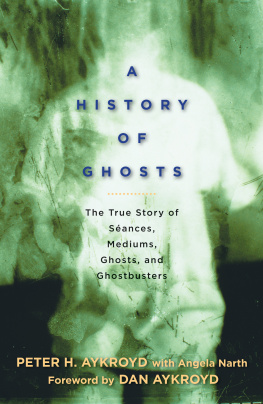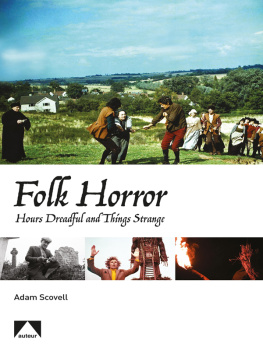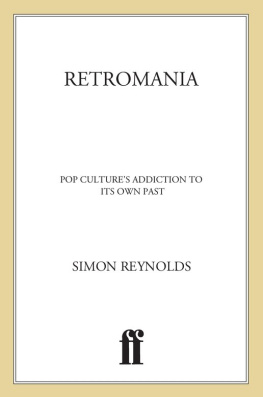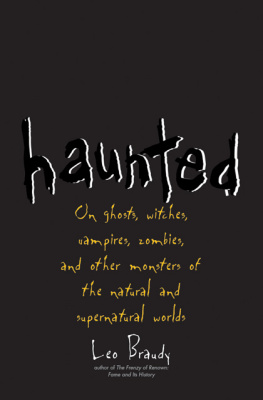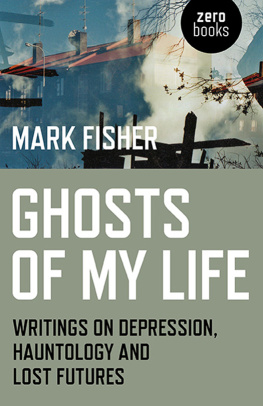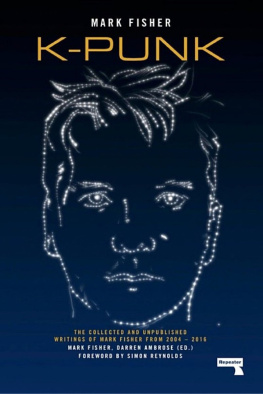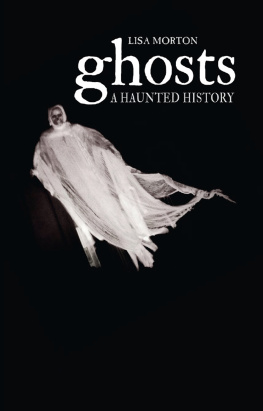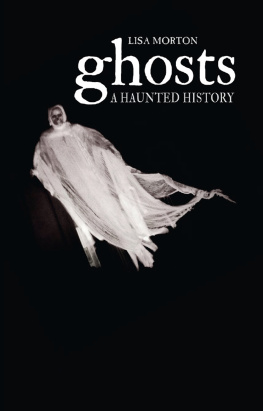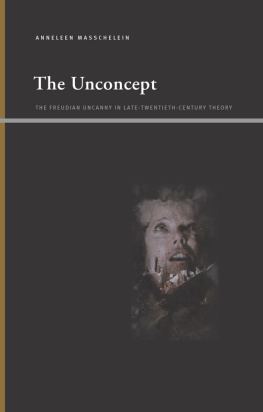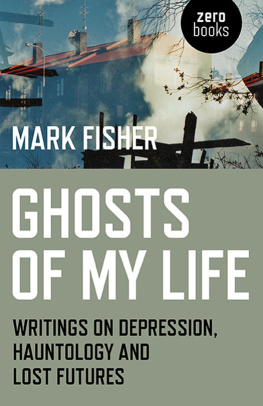T he ghosts are swarming at the moment. Hauntology has caught on. Its a zeitgeist . Mark Fisher (2006)1
Hauntology may be a thing of the past, but this of course means that it will always be with us. Mark Pilkington (2012)2
Ghosts and spectres, the eerie and the occult. Why is contemporary culture so preoccupied by the supernatural, so captivated by the revenants of an earlier age, so haunted? The answer to this question is to be found through an examination of what one critic has described recently as perhaps the most important, political-philosophical concept we have right now: hauntology.3 This is a term that was first coined in the early 1990s by the French philosopher, Jacques Derrida, in his discussion of the enduring legacy of Marxism. Since then, however, hauntology has evolved and entered the cultural mainstream, becoming a shorthand for the ways in which the past returns to haunt the present. Today its use is widespread, its effects visible across a broad spectrum of academic and popular culture, from film and television to music, the visual arts and literature, as well as informing our understanding of the political currents that have shaped our recent history. Despite its growing familiarity, however, hauntology remains a term whose origins and antecedents are unclear, and whose meaning is stubbornly obscure.
I believe that ghosts are a part of the future, claimed Jacques Derrida in 1983.4 This statement was a prophetic one, for ghosts were to become an integral part both of Derridas future and our own, thanks in large part to the publication of his Specters of Marx in 1993. The title of Derridas book, which I shall be discussing in detail in a later chapter, recalls the opening line of The Communist Manifesto of 1848 by Marx and Engels: There is a spectre haunting Europe, the spectre of Communism. Marxs famous proclamation marks the moment at which a spectre was invoked that has been haunting Europe and the wider world ever since, lending retrospective validation to the paradox at the heart of hauntology, in which certain futures have the potential to haunt us even before they have come to pass. As a result, it is 1848, that year of revolutionary near-misses, which marks the beginning of my own account of hauntology and its precursors. It is in Derridas maddeningly opaque book that we find the textual origin of hauntology, or rather lhantologie , a pun on hauntology and ontology that loses much in translation, through which Derrida expresses his belief that being and haunting are interwoven concepts, the ghostly coming to invade every aspect of our lives, from the political and the technological to the cultural and the literary: to be is to be haunted. Derridas resuscitation of Marxism was a response to those on the political right in the early 1990s, such as Francis Fukuyama, who had proclaimed the final victory of western liberalism and with it the end of history. Derrida used hauntology, his science of ghosts, to demonstrate that far from this being the case, the spectre of Marx, like all ghosts which have yet to be laid to rest, would return, repeatedly, disrupting the present and continuing to remind us of another possible future. In fact, so influential was Derridas account that the figure of the spectre was soon to escape the confines of his text, triggering a spectral turn in the academic study of the ghost. A subject which had hitherto been largely dismissed as unworthy of serious critical attention now returned with a vengeance, as ghosts, spectres, revenants and all manner of occult entities came to haunt seemingly every aspect of our culture. As we shall see, ours is by no means the first historical period to be preoccupied by the ghosts of its past, but in the western world, at least, the 1990s was the beginning of such a moment, one in which hauntology, accompanied by the uncanny, the eerie and the weird, first came to public prominence.
If it was the 1990s which witnessed the emergence of hauntology in its first incarnation, it was to gain what Mark Fisher called its second (un)life in the middle of the following decade.5 The name of Mark Fisher is one that will recur throughout this account, for if Derrida is the father of hauntology then it is Fisher who played the greatest role in bringing this concept within the purview of popular culture. In correspondence with his friend, the music journalist Simon Reynolds, in 2005 Fisher began to refer to hauntology on his blog, k-punk , as a means of describing this spectral resurgence, and in particular his belief that the first decade of the twenty-first century was experiencing what he described as the failure of the future, as cultural time decelerated and went into reverse, overwhelmed by a nostalgia for the pop-cultural artefacts of our recent past.6 From these beginnings, hauntology soon emerged as a means of highlighting this cultural, and increasingly political, impasse, a failure of social imagination that left us seemingly unable to envisage any other society than our own.
No sooner had it re-emerged, however, than some critics began to distance themselves from the term, fearing that hauntology was in danger of attracting an unwelcome degree of mainstream recognition, and with it the misuse and oversimplification that often accompanies such overexposure.7 But since his untimely death in 2017, Mark Fishers work has reached a new audience, thus ensuring hauntologys most recent and prolonged return to fashion. Once again, the term has evolved, outgrowing its earlier manifestation as a musical micro-genre and recasting itself in a more overtly political role. By placing the present in conjunction with the recent past, hauntology highlights the shortcomings of the former, identifying the political failings of the present by returning to those moments when a different path might have been taken, turning points whose promise remains unfulfilled and which continue to offer us hope for the future. For Fisher, one such moment was that of the early 1970s, as the revolutionary spirit of the counterculture began to subside and the neoliberal world we inhabit today first started to emerge. At the end of his life Fisher was working on a project that he hoped would recuperate the lost potential of this era and in doing so provide a means of challenging what he saw as the deadening ubiquity of life under late-capitalism.
In both Derridas and Fishers conceptions of hauntology, the crucial element is that of time. For Derrida, the return and repetition of the past in the present is manifested through the figure of the revenant, that which returns each time as if it were the first, unchanging and insistent, demanding a reckoning for a message that went unheard or was ignored. For Fisher, as we shall see, there are two opposing temporal currents intrinsic to hauntology: the no longer and the not yet .8 The former haunts the present from the past, an event, idea or entity whose moment is past but which continues to make its presence felt. The latter haunts the present from the future, through the unfulfilled promise of that which never came to pass but which may yet do so. In both instances, their impact is felt now, in the present, either through repetition or anticipation. The very idea of the ghost as that which comes from the past to manifest itself in the present and yet which belongs to neither, simultaneously both absent and present, challenges our belief in the unbroken progression of linear time. Hauntology foregrounds such temporal disjuncture or dyschronia, questioning whether we truly experience time in so straightforward a manner as the linear model suggests. Instead, both Derrida and Fisher see history as one characterised by repetition and disruption, as the past recurrently irrupts into the present, forcing us to reconsider events and ideas we might have regarded as safely consigned to the past. Fisher goes further, arguing that since the closing decades of the twentieth century, cultural time has faltered, dragged to a standstill by the ever-growing weight of our recorded past; not so much the end of history as an excess of history, beneath which we struggle to move forward.9
Next page
